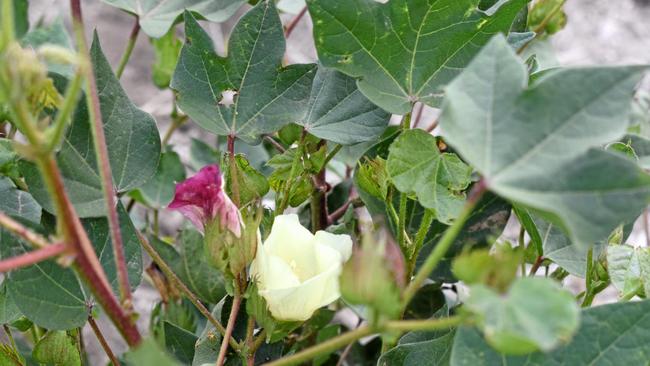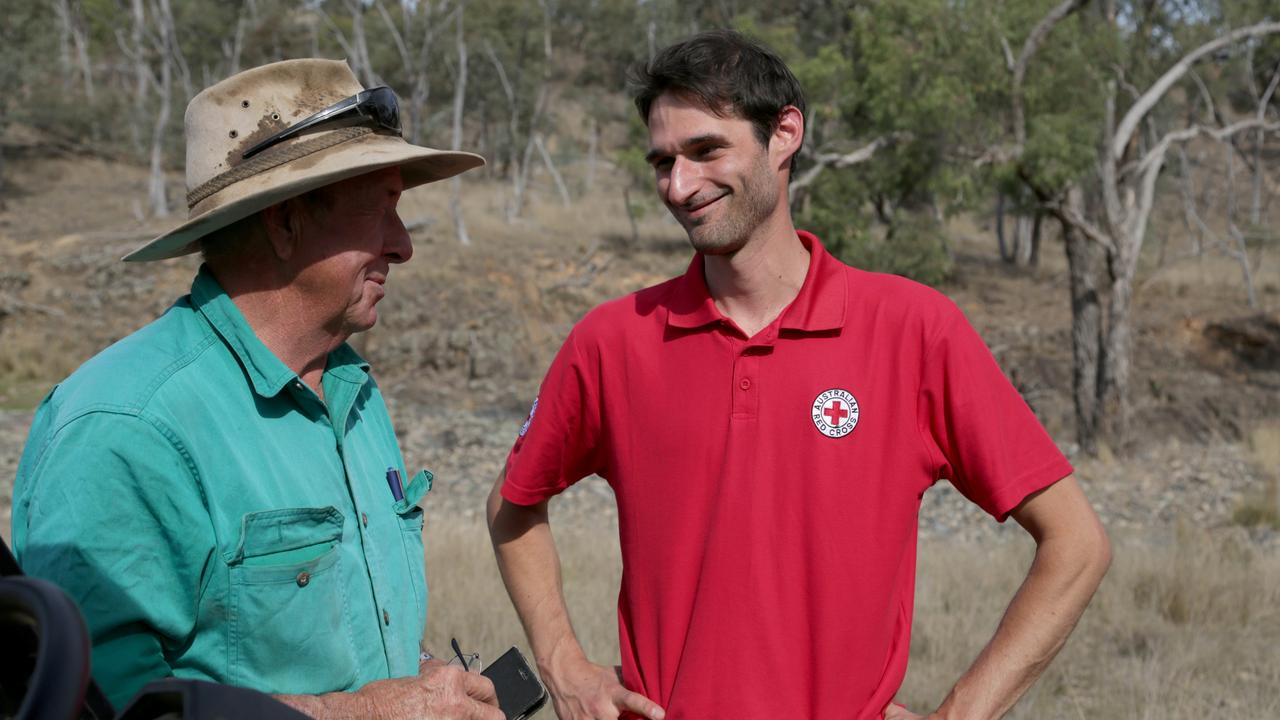Berwyndale Pastoral: Cotton farm embraces new opportunities
The Uebergang family embrace change in their farming business, Berwyndale Pastoral.
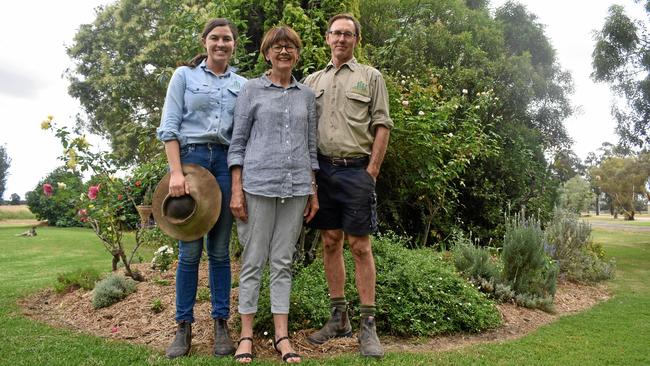
THE Uebergang family embrace change in their farming business, Berwyndale Pastoral.
Between the ongoing drought and coal seam gas, the family always manages to find a silver lining, including high grain prices and a chance to access more water.
Berwyndale has been in the Uebergang family since 1948, and is now run by third-generation Tamara Uebergang, and her parents Margaret and Bruce.
Berwyndale Pastoral, near Miles in Queensland, is a cropping operation with a small number of trade steers.
“When my grandfather came here it was a block full of brigalow,” Ms Uebergang said.
“He was one of four brothers.
“After World War II, they came up north looking for tall brigalows and deep melon holes.”
Berwyndale was recently part of the Western Downs’ Big Skies Festival regional tours.
Ms Uebergang said her family believed it was important to connect with the community and consumers.
“It’s more important than ever with the amount of misconception with agriculture,” she said.
“We are an open book and we know the value and honour in growing food and fibre. We love to share that journey with everyone, whether it be the local community or consumers at the other end.
“I think connection can foster understanding.”
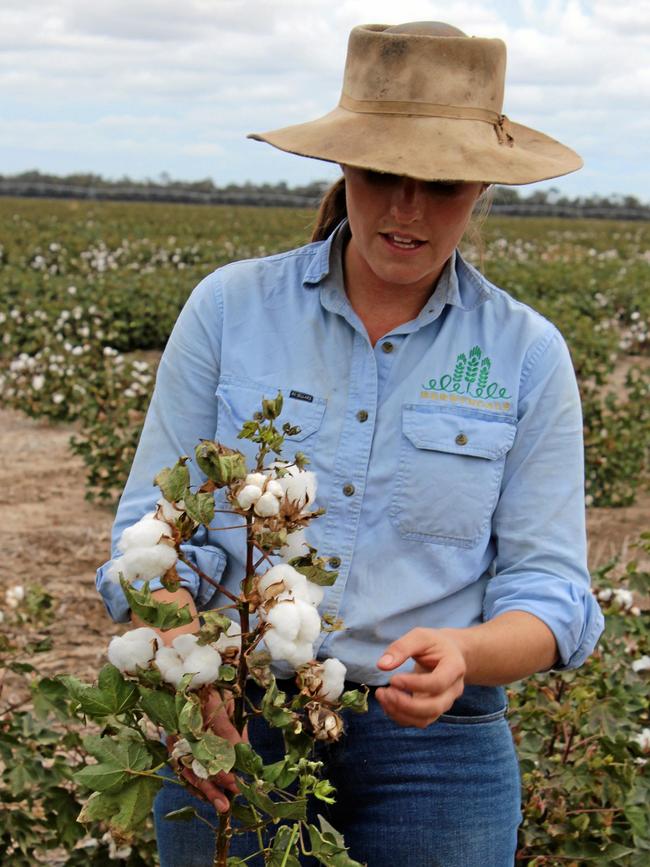
The Rural Weekly caught up with Ms Uebergang again last week, while she was in the tractor planting wheat for winter.
During summer, the Uebergangs grow cotton and sorghum.
Due to the dry season, the cotton was planted with a double skip this time.
“Essentially it is a similar amount of area but half the amount of plants,” Ms Uebergang said.
“We chose this configuration to capitalise on rainfall.
“Which, in other seasons, might work out better than the last one.”
Ms Uebergang said their season was hot and dry, which was not unusual for Queensland.
“We had the good rain in March from Cyclone Trevor but it came a little bit late,” she said.
“We did have plenty of sunshine, which is good for cotton, but without natural rainfall it is hard to keep up.”
The irrigated cotton received 4ML of water through centre pivots.
Water at Berwyndale is captured through overland flow and with some supply through a contract with Origin to use water from coal seam gas extraction.
Ms Uebergang said Queensland gas first came to their property in 1999.
“Like any long relationship there are ups and downs,” she said.
“There have been a lot of changes to landholder rights.
“There is now a land access code to level the playing field and provide some framework around interactions and responsibilities for both parties
“For us, it’s very much you just work out what you can change and what you can control, and if you can’t change it, don’t worry about it.”
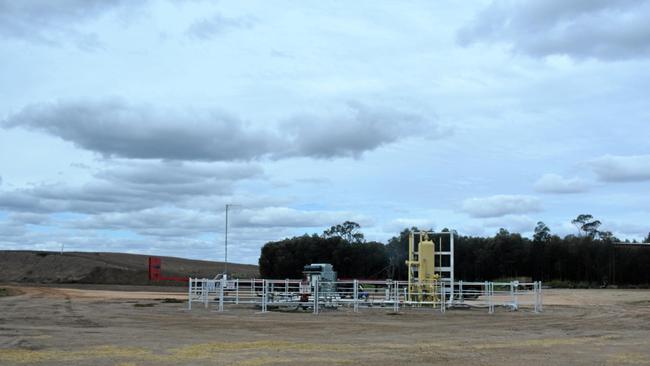
The coal seam gas industry did provide an opportunity for locals to apply for a tender to use water extracted as a by-product of the gas.
“It was an opportunity that was available to all landholders along Fairymeadow Rd,” Ms Uebergang said.
“Some people took it and some people didn’t.
“Taking the opportunity was a considered risk.”
Another handy by-product used at Berwyndale is feedlot manure.
They make a compost of feedlot manure, old hay and clay from the farm.
The compost is spread over the paddocks with stubble before planting the next crop.
“We make compost with a view to long-term sustainability; we are aiming to get away from synthetic fertilisers and fossil-fuel based fertilisers like urea,” Ms Uebergang said.
“This is our part to increase moisture retention, and ultimately improve soil health.”
The Uebergangs usually plant wheat and chickpeas as part of their winter rotation.
“We have chosen to plant wheat over chickpeas because stubble cover is priceless,” Ms Uebergang said.
“The last few years we’ve grown a larger portion of chickpeas and it doesn’t hurt to have a break.
“The stubble cover from wheat is another part of the investment.
“Cotton prices have come back quite a bit from the highs of a few weeks ago but anything about $500 a bale we’re happy with,” she said.
“Last year’s wheat prices were good as well. The east coast has been importing across from the west.”
Berwyndale’s cotton is taken to the Dalby gin, where the lint and seed are separated.
“Most Australian cotton goes offshore, predominantly to China,” Ms Uebergang said.
“Cotton is graded through a series of metrics and from there either a premium or a discount is applied, and more often than not Australia receives a premium for our high quality.
“Feedlots and supplementary paddock feeders will buy cotton seed and the other place it goes to is oil.
“The seed has been a bit of a bonus over the past few seasons.”
Berwyndale has brigalow nature strips, which have been lining the property since it was first cleared.
“When the land was cleared it was with two bulldozers, a scrub chain, and two compasses. They’ve done a good job of giving us relatively square, even-sized paddocks,” Ms Uebergang said.
“We probably couldn’t have done a better job with GPS and modern technology.
“Now these (trees) are fully protected. Even if they weren’t protected by law, we’d keep them.
“Healthy timber strips act as an excellent wind break, and a corridor for native wildlife.”
In 2018 Ms Uebergang was awarded a 2019 Nuffied Scholarship, and she has just returned from her travels to Brazil.
“Seeing some very large operations in Brazil reminded me how tiny we are in terms of production,” she said.
“I am acutely aware that we need to celebrate our point of difference in the market.
“We can’t compete on size and scale, however, quality of product, environmental and social credentials are an opportunity for Australia.”
Ms Uebergang said the Nuffield Scholarship was a fantastic opportunity to connect with growers, researchers, and consumers on a global stage.
“It can be very easy to get caught in our little Western Downs bubble,” she said.
“And I want to keep expanding that.”
Ms Uebergang is a registered nurse, but decided to return to the farm when an opportunity arose for her to join her family’s business.
FUN FACT
Cotton flowers first appear white and turn pink once they are pollinated.
